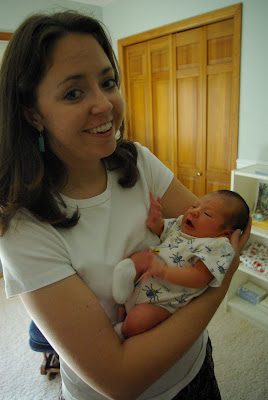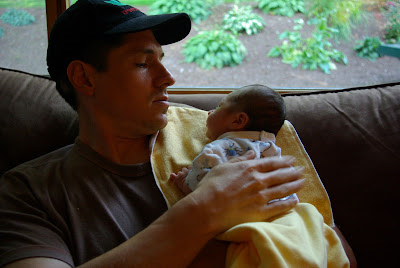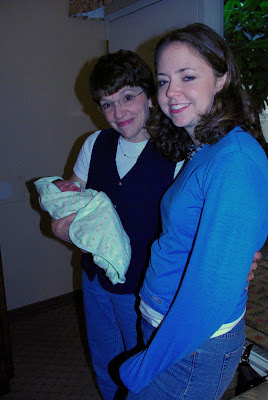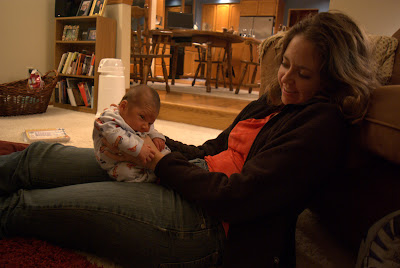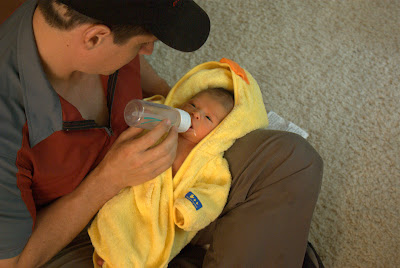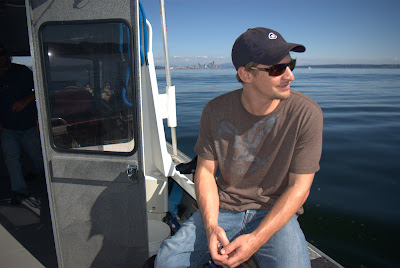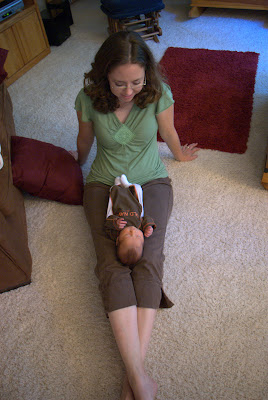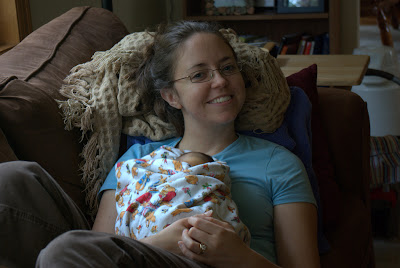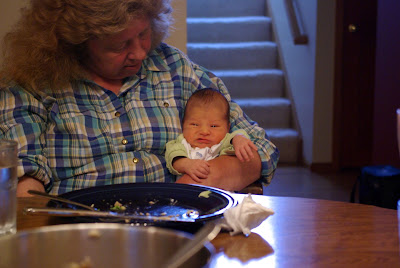I've been exceedingly negligent the last week or so in my blog postings, but it turns out that I have a good excuse.
Galena and I have been trying to have kids for the last five years, to no avail. We didn't quite push it to the limits of medical science, but we came pretty close. To paraphrase Terence, nothing that is medical remained foreign to us, and we became intimately acquainted with a profusion of drugs, procedures and three-letter medical acronyms. A little over a year ago, we concluded that begetting our own children wasn't going to happen, and we began looking into adoption.
For the record, adopting a kid is a great deal more work than making one on your own, and not nearly as much fun. Think of it as college without the parties. You go to classes; you write a lot of essays; you're assigned insane amounts of homework. You submit to being examined and prodded and tested in every conceivable way. If it took this much paperwork to have a kid in the normal way, the human race would be extinct in two generations.
In a journey filled with irony, the most ironic moment came last March, one week after our adoption agency had finally approved us, and put our names on their year-long waiting list. Dorothy, a 16-year old girl from our church, knew that we were looking to adopt; she invited us to have coffee with her and her 18-year old boyfriend Emmanuel. It turns out she was pregnant, they had decided not to have an abortion, and they wanted to know if we would adopt their baby. Swallowing hard, and with damp eyes, we said yes.
According to the ultrasounds, Dorothy was due on September 7, but we wondered all along if maybe she was further along than the doctors thought. We were excited then, but not entirely surprised, when we received a call last Friday afternoon that she was having contractions. We hadn't quite finished assembling the nursery, and hadn't purchased all the diapers or formula we'd need, but otherwise we were mostly ready. Galena ran home to grab the car seat and we headed to Dorothy's house to assess the situation.
The situation, though, seemed to need very little assessment. Dorothy's back was hurting her, and she was having very irregular contractions, but she was otherwise fine. We had dinner with her family, took a walk with Dorothy and a friend, took some pictures, and then headed home.
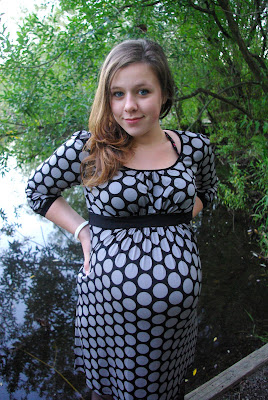
The next morning things were pretty much the same: some back pain, very irregular contractions. Dorothy was getting tired of not making any progress, so she scheduled a visit with her midwife that afternoon to see what the situation was. Given the irregularity of the contractions, we all assumed that Dorothy was maybe slightly dilated – a centimeter or two – and that active labor wouldn't start for some time.
So when we got to the birth center, the midwife took Dorothy into another room. We heard later that the examination went something like this.
The midwife felt around, got a funny look on her face, then stood up and asked Dorothy, "Will you be offended if I swear?"
"No . . . but why?" Dorothy asked.
"Because you're fully f***ing dilated! You're ready to have this baby."
(Later, we were trying to remember if anyone had sworn during the labor. The midwife raised her hand guiltily and said, "I think I was the only one – but I was provoked by unprecedented dilation!")
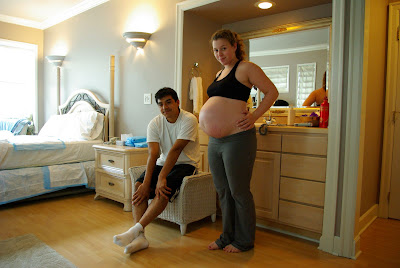
In other words, Dorothy had already bypassed the first three stages of labor and was ready to proceed straight to the fourth and final one: pushing. The midwife broke Dorothy's water, and 35 minutes later, with nothing more offensive or disturbing from Dorothy than an occasional "Ow! Ow!", our joint son was born. His name is Caedmon Dante Christian Smith. Emmanuel, his birth father, caught him, and placed him on Dorothy's stomach. Caedmon howled briefly, fussed for a while longer, and then calmed down.

Like all newborns, he was more grey than pink, and like most babies who are somewhat premature, he was covered with a whitish gunk that has an official name I've since forgotten. But he cleaned up amazingly well, and apart from a slightly crooked nose from pushing his face too hard against Dorothy's pelvis, he's perfect. I'll say it: he's beautiful.
We didn't get to hold him right away, as Dorothy and Emmanuel were quite understandably fascinated with him.
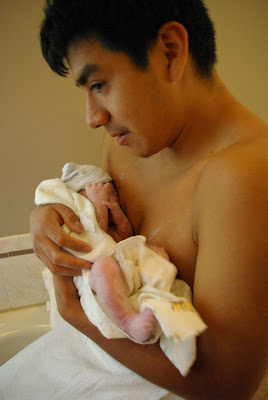
But we've held him plenty since, and I'll always be grateful to Dorothy for letting us be there at his birth.
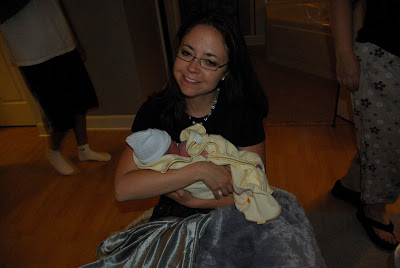
Birth at a birthing center is quite different than at a hospital. My grandmother says she was allowed to dangle her legs after six days; the midwives had us up and out before six hours had passed. Caedmon, along with Dorothy and Emmanuel, spent the next three nights at the Bellevue Embassy Suites. This was something we had agreed to at the beginning, as the two of them wanted to know something of what it would be like to be parents, to get to know him, and to figure out how to say good-bye. We spent many hours there the first couple of days, before figuring out that we also needed to give Dorothy and Emmanuel some space.
I can't describe how hard it was to say good-bye to Caedmon each time we left the hotel – but then I can't imagine how hard it was for Dorothy and Emmanuel to hand him over to someone else permanently. Even so, as hard as it was, they signed the last of the paperwork yesterday, and today they brought Caedmon home to live with us. He's going to have a huge extended family, as you can get a sense of when you see how many people came to visit him during his stay at the Embassy Suites. But we're looking forward to being just a small family for a few days.
